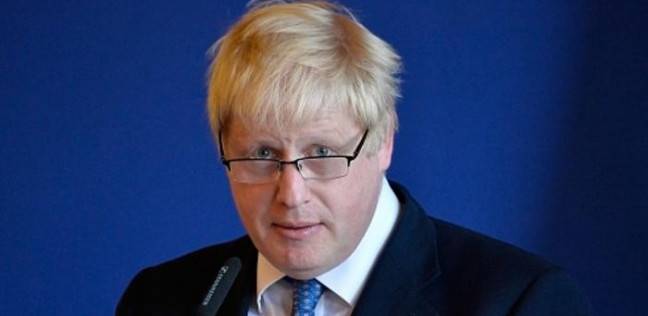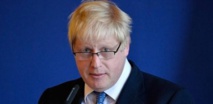"Assad uses chemical weapons because they are not only horrible and indiscriminate. They are also terrifying," Johnson wrote.
"In that sense he is himself an arch-terrorist, who has caused such an unquenchable thirst for revenge that he can never hope to govern his population again.
"He is literally and metaphorically toxic, and it is time Russia awoke to that fact. They still have time to be on the right side of the argument."
Johnson was widely criticised for failing to get the G7 to back his bid for new sanctions against senior Russian and Syrian figures following the chemical weapons attack in Syria's Idlib province that killed dozens and caused an international outcry.
But he said the chemical assault had changed the West's stance on Syria.
"The UK, the US and all our key allies are of one mind: we believe that this was highly likely to be an attack by Assad, on his own people, using poison gas weapons that were banned almost 100 years ago," he wrote.
"Let us face the truth: Assad has been clinging on. With the help of Russians and Iranians, and by dint of unrelenting savagery, he has not only recaptured Aleppo. He has won back most of 'operational' Syria."
Before the April 4 chemical attack, the West was "on the verge of a grim consensus", which had now changed, said Johnson.
The consensus had been that it would be more sensible to concentrate on the fight against Islamic State jihadists and to accept reluctantly that removing Assad, "though ultimately essential -- should await a drawn out political solution".
A suicide car bomb attack on buses carrying Syrians evacuated from two besieged government-held towns killed 43 people on Saturday, as US-backed fighters advanced in their push towards the IS group's Raqa stronghold.
-----------------------------------------------------------------------------------------------------
"In that sense he is himself an arch-terrorist, who has caused such an unquenchable thirst for revenge that he can never hope to govern his population again.
"He is literally and metaphorically toxic, and it is time Russia awoke to that fact. They still have time to be on the right side of the argument."
Johnson was widely criticised for failing to get the G7 to back his bid for new sanctions against senior Russian and Syrian figures following the chemical weapons attack in Syria's Idlib province that killed dozens and caused an international outcry.
But he said the chemical assault had changed the West's stance on Syria.
"The UK, the US and all our key allies are of one mind: we believe that this was highly likely to be an attack by Assad, on his own people, using poison gas weapons that were banned almost 100 years ago," he wrote.
"Let us face the truth: Assad has been clinging on. With the help of Russians and Iranians, and by dint of unrelenting savagery, he has not only recaptured Aleppo. He has won back most of 'operational' Syria."
Before the April 4 chemical attack, the West was "on the verge of a grim consensus", which had now changed, said Johnson.
The consensus had been that it would be more sensible to concentrate on the fight against Islamic State jihadists and to accept reluctantly that removing Assad, "though ultimately essential -- should await a drawn out political solution".
A suicide car bomb attack on buses carrying Syrians evacuated from two besieged government-held towns killed 43 people on Saturday, as US-backed fighters advanced in their push towards the IS group's Raqa stronghold.
-----------------------------------------------------------------------------------------------------









 Home
Home Politics
Politics











